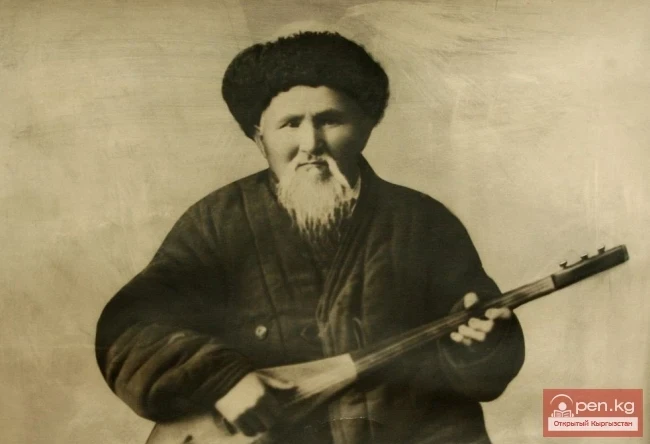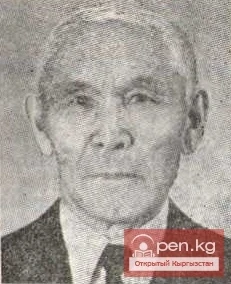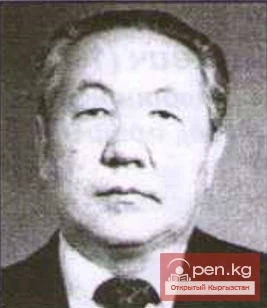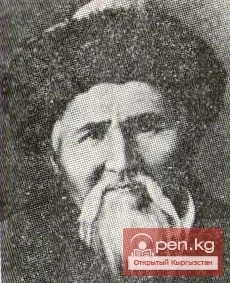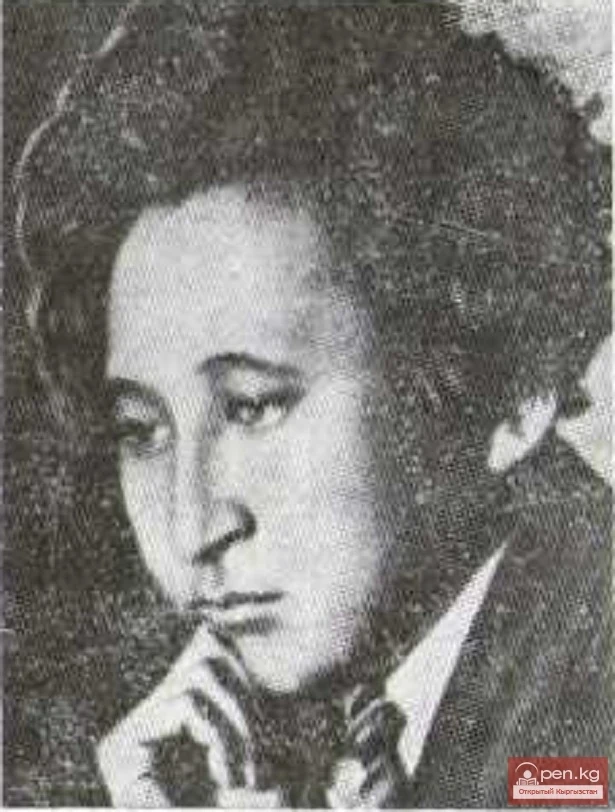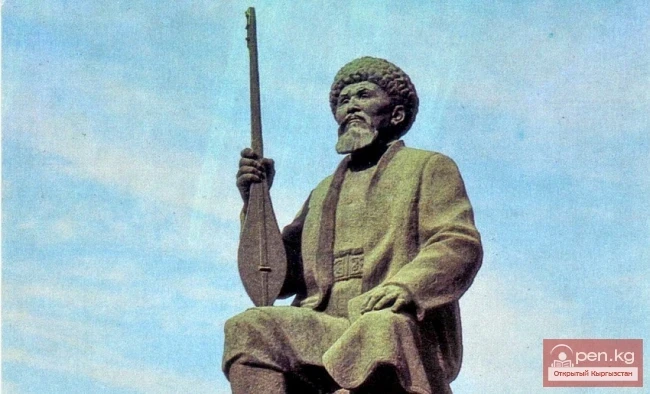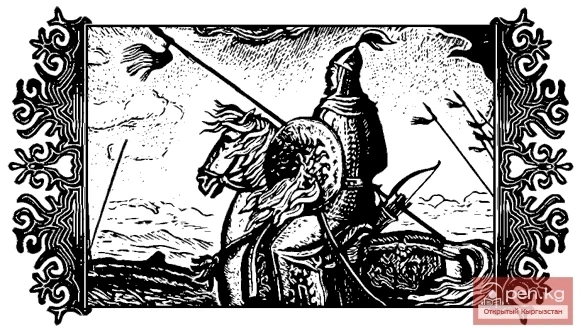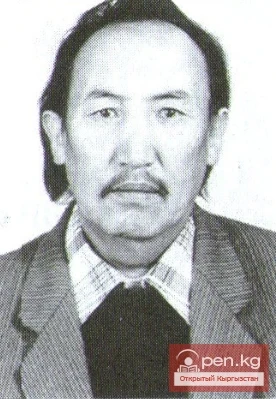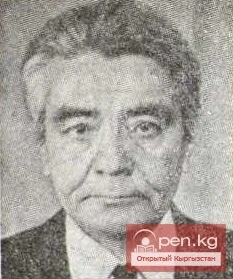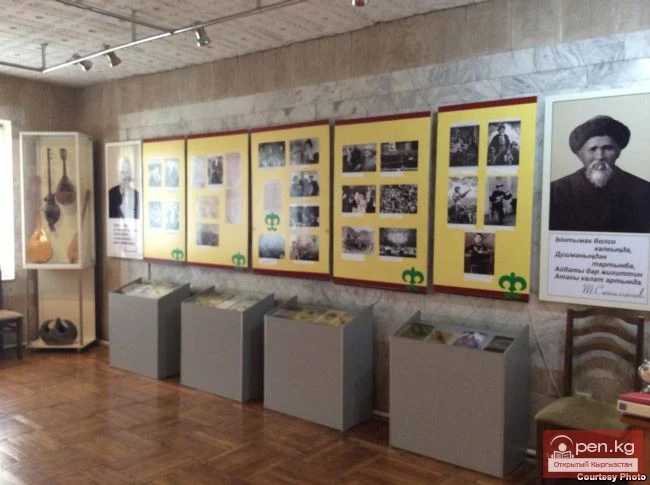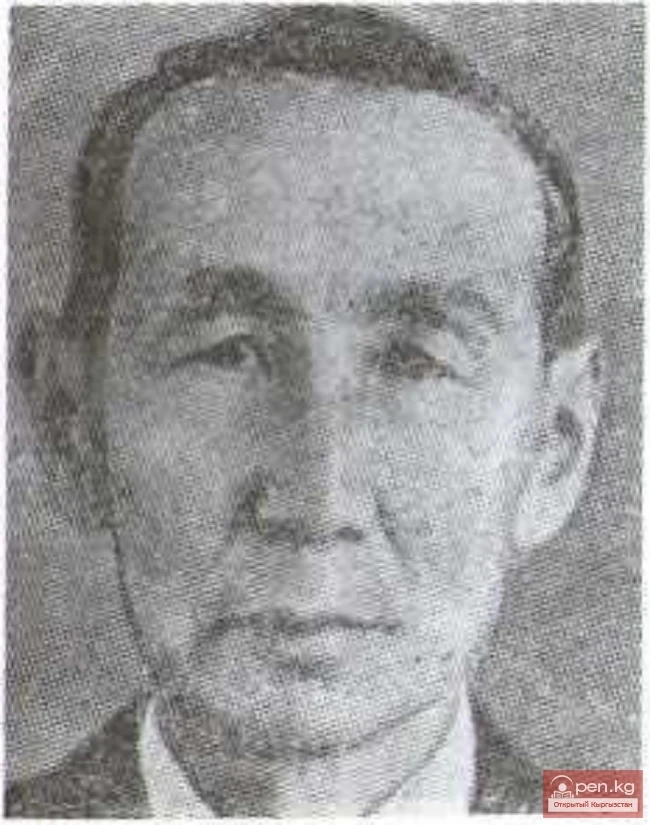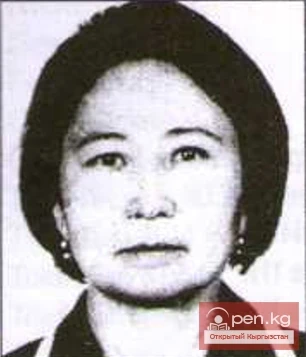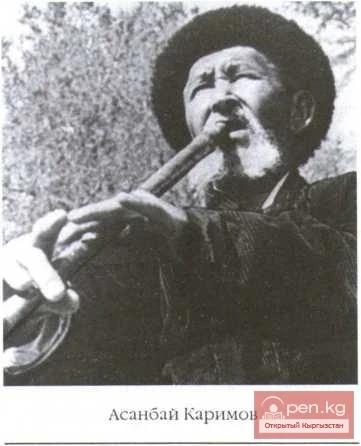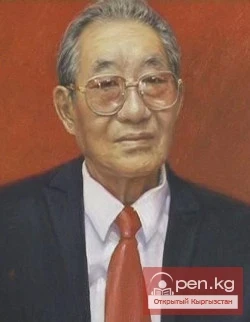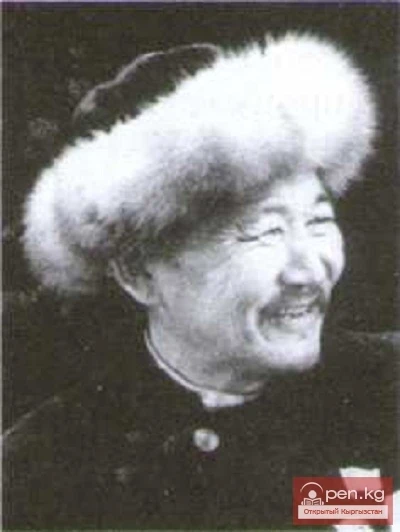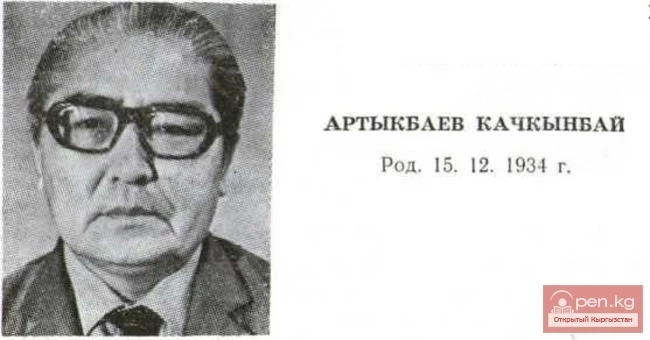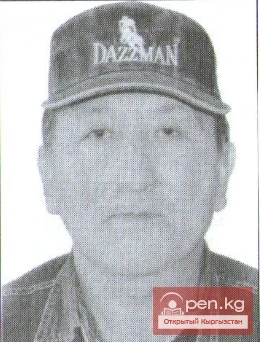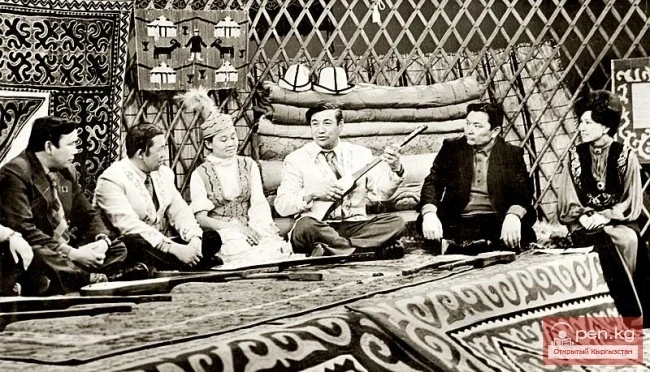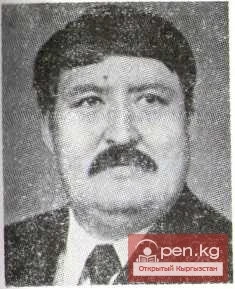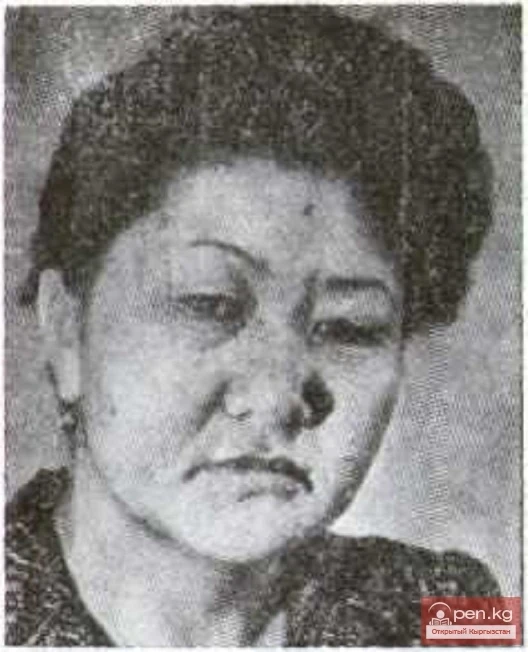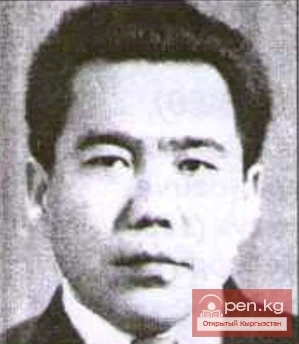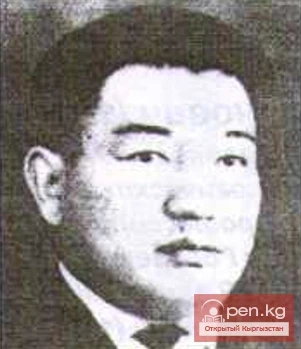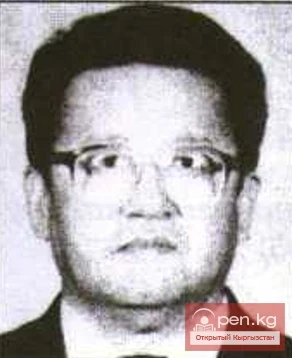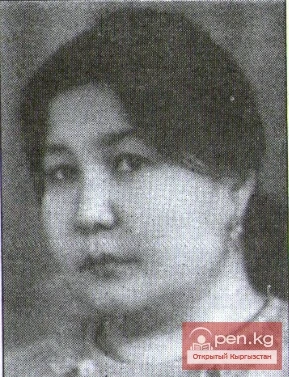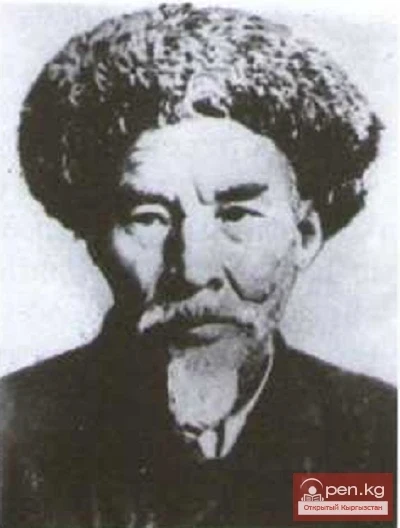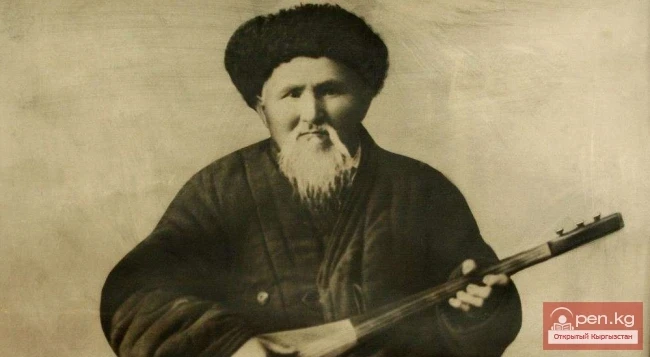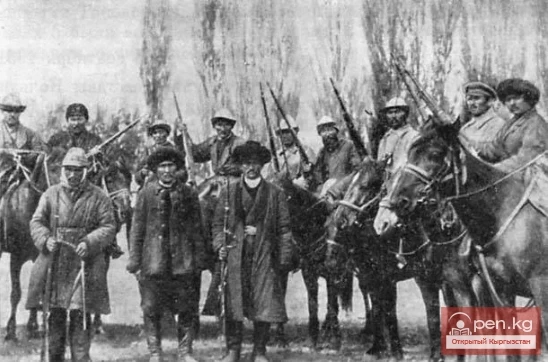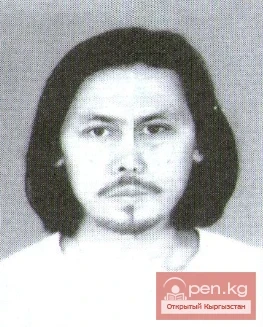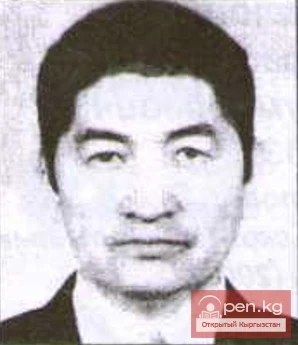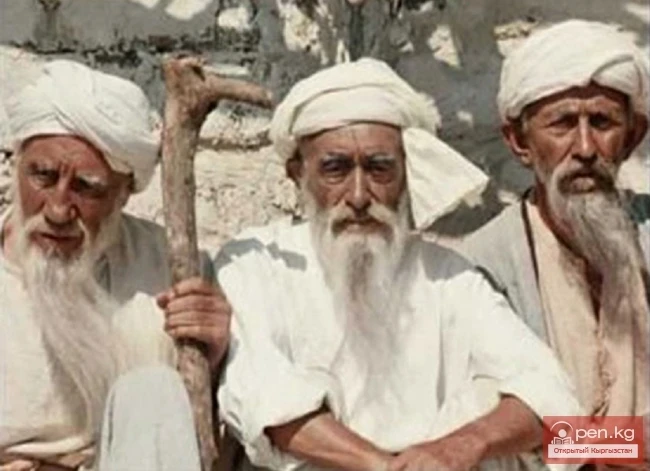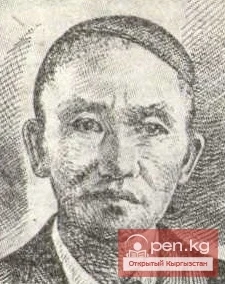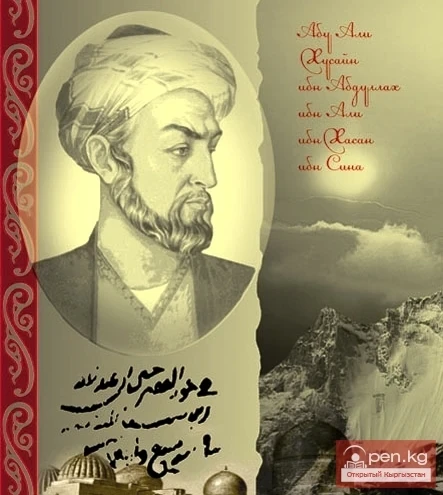The greatest representative of the akyn art of the first half of the 20th century was Toktogul Satylganov (1864—1933), who raised a whole generation of professional akyns and created his own school.
Toktogul mastered all genres of akyn songwriting. Like all Kyrgyz akyns, he began his creative journey by mastering the popular genres of song folklore. His first compositions were created in the spirit of lyrical folk songs. These include songs like "Alimkan," "Nasylkan" (female names), "Red Dress" ("Kyzyl keynek"), and others. Gradually, works of political and socially critical content began to take center stage in Satylganov's creativity, such as the satire "Five Boars" ("Besh kaman").
Toktogul innovatively interpreted some folk song genres, giving them a meaning relevant to his time. Ancient, relatively simple in form lyrical-domestic genres, such as "arman" and "sekhetbay," he developed into large improvisational song-poems with new content.
Toktogul Satylganov was born in 1864 in the village of Sasyk-Jiyde in the Namangan district of the Suusamyr volost (now Toktogul district), into a poor family. His mother, Burma, was a talented and well-known in her area kochokchu (lamenter). She became Toktogul's first mentor, awakening in him the desire to sing and compose.
Toktogul's professional development began under the influence of famous folk singers and musicians of that time, such as Esenaman, Niyazaly, Sary Yrch, and Kochkombay. In 1882, Toktogul participated in an "aytysh" (poetic duel) with Arzymat, the akyn of the manap Dyykanbay. This dramatic encounter ended with Toktogul's victory and determined his fate. Toktogul chose the path of a shayyr, a professional folk akyn and komuz player.
In 1884, he got married and started a household. After the birth of his son Topchubai, Toktogul moved with his family to the nearby village of Iyri-Suu, where his maternal relatives lived.
In 1898, for participating in the Andijan uprising, Toktogul was arrested and sentenced to death by hanging, but soon the death sentence was commuted to seven years of hard labor in Siberia. In the Irkutsk Alexandrian central prison, Toktogul spent five years. After multiple attempts, he finally managed to escape. He returned to his homeland in 1910. In the meantime, his family fell apart, and his son died. But grief did not break Toktogul; no twists of fate extinguished his passionate will to create and to live. He became the most famous akyn, the "voice" of the common people.
In 1928, the People's Commissariat of Education of the Kyrgyz Autonomous Republic summoned Toktogul to Frunze to record his works, which were made by A. Zatayevich. At that time, 18 works were recorded in Toktogul's performance, mostly instrumental.
Toktogul died in 1933 at the age of 69 in his native village and was buried there. A monument was erected at the akyn's grave, and a museum was opened in the village. His son Babajan (from his second marriage) followed in his father's footsteps, becoming an artist at the Toktogul District House of Culture and a solo komuz player at the Kyrgyz State Philharmonic.
The akyn's songwriting of Toktogul Satylganov can be divided into four periods. In the first, the so-called pre-Siberian period, he mainly performed traditional folk songs — lyrical "sekhetbay" and "kuygen." In addition to these, he composed akyn songs of the type "sanat" and "nasyiat" — for example, "What is Interesting?" ("Emne kyzyk?"), "Bloom" ("Guldepal"), "Model Song" ("Ulguyry"). In the song "Emne kyzyk?", one of the best works of this period, a youthful dream of happiness is expressed. The song was recorded from akyn Kalik Akiev:
Then you live well,
When the fire burns in you,
When your argamak is good,
And the new dress shines,
When your wife’s beauty
Outshines any mirror.
The main theme of the songs of the second, Siberian period was the theme of captivity, the painful longing for the homeland. Songs dedicated to this theme include "When Will I Return to My People?" ("Elime kachan jetemin"), "The Prisoner's Dream" ("Tutkundağı arman"), "The Golden Eagle over the Mountains" ("Aylangan tooun burku tu"), "Is This Your Interrogation?" ("Ushundayby suragyts?"), "Bitter You, Life" ("Azapka tushu emurum").
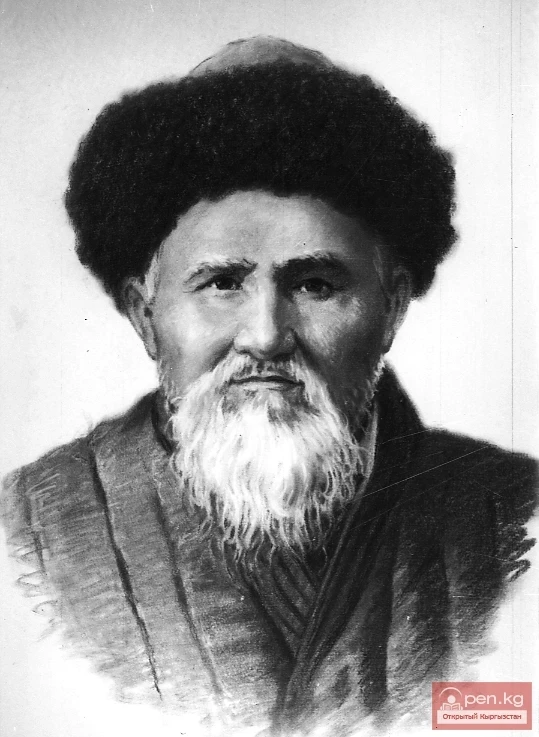
The sufferings of the exile and his unquenchable hope are embodied in the deeply unique melody "Elime kachan jetemin." Notably, there is a rare modal tonal variability for Kyrgyz "obon": the Ionian mode (major scale) in the quartal structure with a B-flat tonic modulates to the Aeolian minor B-flat of the same structure:
When will I return to my people?
When will I become free?
Will I reach my people,
Will my dreams come true?
The third period encompasses songs composed by the akyn after his return from Siberia until the establishment of Soviet power in Kyrgyzstan. The first song after Toktogul's return to his homeland was the tragic song "No Son" ("Balam jok"), composed and performed by the akyn as a "kochok" for his deceased Topchubai. Toktogul sang it, apparently, in the presence of close friends-akyns, as after his death they performed this "kochok" for folklore recording. These were contemporaries and students of Toktogul — Eshmambet Bayseitov, Kalik Akiev, Korgool Dosuiev, and Alimkul Usenbaev. In 1940, K. Dosuiev reported to V. Vinogradov two versions of the song "Balam jok":
He did not come out, frolicking, to me,
He did not cry, bending to me,
He faded in longing and need,
He lies in an unbroken sleep...
My longing is hopeless,
My path is sorrowful and heavy,
My son will not say upon meeting:
"Here comes my poor father!"
The last, so-called Soviet period of Toktogul Satylganov's creativity is opened by the songs "Live, Soviet Power!" ("Jashasin sovet ekmetu!"), "What Kind of Mother Gave Birth to Such a Son as Lenin" ("Kanday ayal tuudu ekan, Lenindey uuldun"). In style, these solemn songs resemble the traditional hymnic genre "maktoo yry."
In the solo genre, Toktogul also created songs on various themes: patriotic — "Raise the Banner" ("Biiyik keter tuundu"), "Native Land" ("Tuuğan jerim"), "Our Wealth is in Cotton Growing" ("Balbandyk, baylyk pahtada"), satirical — "No Bullet for the Basmach" ("Basmachynyn ogu jok"), "Orozo," lyrical — "Testament" ("Kereez"), and others.
From Atai Ogonbaev, a student of Toktogul, two songs of the akyn were recorded, apparently composed in his old age: "When I Was Young" ("Bala elem") and "Old Age" ("Karylyk"). In the first song- "arman," the akyn laments the lost youth, when his voice was as clear as a nightingale. This song also has a didactic tone. The author, a wise elder, advises the youth:
My beard has turned gray,
I sing about this with sorrow,
Where are you, my singer Toko?
People used to seek me,
I was needed by them, but now?
Yes, youth has passed,
I think about this with sadness.
V. Vinogradov, who recorded this song in the performance of Atai Ogonbaev, noted that it "begins in restrained and even harsh tones. Later, the music becomes more enlightened, dreamy, and even playful."
In a similar style, the "arman" sounds in Toktogul's song "Karylyk," but the author developed it into a large musical-poetic poem.
Toktogul's "swan songs" in solo akyn genres became the testaments "The Years Go By, Old Age Approaches" ("Kulgun jash etup eskiret"), "Toktogul's Last Song" ("Toktogul'dun elum aldindagy yrdaga ny"). In them, the akyn uses the ritualized genre of oral folk creativity "kereez" (testament) to express hope for the future prosperity of the Kyrgyz people.
Toktogul often performed in dialogical akyn genres and was considered a master of "aytysh." Philologists have collected texts of at least 30 "aytysh" in which he participated.
Toktogul held the most "aytysh" with akyns Alimkul Usenbaev and Eshmambet Bayseitov. These were dialogues most often of a friendly nature, i.e., non-conflict type. Besides Alimkul and Eshmambet, Korgool Dosuiev and Kalik Akiev also competed with Toktogul. There is a well-known fact when four akyns participated in an "aytysh" — Toktogul, Alimkul, Sulayman, and Akys.
Unfortunately, during Toktogul's lifetime, there was no opportunity to record an "aytysh" with his participation. But akyn Alimkul Usenbaev restored from memory a humorous-lyrical "alym sabak," which once took place between him and Toktogul and was dedicated to the beauty Akbara. In his performance, it was a quasi-dialogue — Alimkul sang for himself and for Toktogul:
Alimkul: Toko, let’s try to play
With this rosy beauty?
Toktogul: If you hurry, you’ll make people laugh,
You need to approach her wisely.
Alimkul: Will my words please, Toko,
The dark-browed beauty?
Toktogul: Think, my son,
She is too young for you...
The universality of Toktogul's genius lies in the multifacetedness of his talent and the diversity of genres and styles. T. Satylganov creatively developed the artistic traditions of his predecessors and opened new perspectives for Kyrgyz professional folk musical and poetic art, which were embraced by his students and followers.
